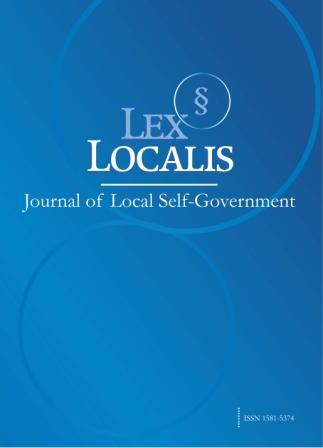Challenges and opportunities for women in the fintech industry: a global perspective
DOI:
https://doi.org/10.52152/3173Keywords:
Fintech; Global; semi-structured; FemaleAbstract
This paper analyzes the social problems and professional situations that female science and technology practitioners should face, respectively, and analyzes the social support rate and professional situation of female practitioners through the semi-structural method. Specific conclusions are as follows: (1) through the network questionnaire for the "Chinese women" career-family " dilemma survey for the professional mother group, the questionnaire includes basic information, work development, work arrangement, birth policy, household distribution, value identity, content, at the same time through semi-structured interview with several working mothers and enterprises and institutions, head of depth communication, and combined with social observation, understand the women's life situation and the dilemma. (2) in the background of gender structure inequality in the technology industry, the "Women ln Tech female technology practitioners collection" group as a description of a supportive community and the online social support shows the group response to female technology practitioners' gender anxiety, and the reconstruction of gender discourse and gender consciousness. (3)Research found that in the background of the relatively different gender ratio of men and women in the current science and technology workplace, the traditional gender construction is constantly replicated through the workplace culture and has a particular impact on women in the division of labor, promotion, salary increase, and other aspects.
References
Mhlanga, D. (2022). Prospects and challenges of digital financial inclusion/Fintech innovation in the fourth industrial revolution. Digital financial inclusion: Revisiting poverty theories in the context of the Fourth Industrial Revolution, 163-182.
Omiwale, B. R. (2024). Gender gap in FinTech–how to expand the boundaries of women's representation and leadership in the FinTech ecosystem (Doctoral dissertation, Memorial University of Newfoundland).
Becker-McNabola, T. (2018). An exploratory study of the barriers and enablers that influence the career advancement of women to leadership roles in Fintech (Doctoral dissertation, Dublin, National College of Ireland).
Fox-Robertson, C., & Wójcik, D. (2024). The triple glass ceiling: FinTech gender inequalities. Finance and Society, 1-20.
Filipovska, O., Voicu-Dorobantu, R., Wu, H., Altinbas, H., Hazizi, T., Ozturkkal, B., ... & Stankova Medarovska, M. (2024). Gender Balance in Fintech Platforms-Investigating Factors and Regulatory Response. Available at SSRN 5000956.
Khera, P., Ogawa, S., Sahay, R., & Vasishth, M. (2022). Women in fintech: as leaders and users.
Ediagbonya, V., & Tioluwani, C. (2023). The role of fintech in driving financial inclusion in developing and emerging markets: issues, challenges and prospects. Technological Sustainability, 2(1), 100-119.
Deen, L. (2021). WOMEN of FINTECH. Women of Color Magazine, 21(1), 22-27.
Esmaeilpour Moghadam, H., & Karami, A. (2023). Financial inclusion through FinTech and women's financial empowerment. International Journal of Social Economics, 50(8), 1038-1059.
Kuschel, K., Lepeley, M. T., Espinosa, F., & Gutiérrez, S. (2017). Funding challenges of Latin American women start-up founders in the technology industry. Cross Cultural & Strategic Management, 24(2), 310-331.
Siwela, G., & Njaya, T. (2021). Opportunities and challenges for digital financial inclusion of females in the informal sector through mobile phone technology: evidence from Zimbabwe.
Mohamed, H. Y., Hamdan, A., Karolak, M., Razzaque, A., & Alareeni, B. (2021). FinTech in Bahrain: The role of FinTech in empowering women. In The Importance of New Technologies and Entrepreneurship in Business Development: In The Context of Economic Diversity in Developing Countries: The Impact of New Technologies and Entrepreneurship on Business Development (pp. 757-766). Springer International Publishing.
Sgro, J., Smalley, P., & Welch, N. (2019). The Fintech Opportunity. Strengthening the Rules-Based International Order, 11-14.
Jugurnath, B., Hemshika, P., & Štraupaitė, S. (2023). FINTECH CHALLENGES AND OPPORTUNITIES IN BANKING. Management/Vadyba (16487974), 39(1).
Kurnianingsih, M., Azhari, A. F., Dimyati, K., Absori, A., Wardiono, K., Kuswardhani, K., & Nurrachman, A. D. (2022). Criminal victimization: women and Fintech financing from the theory of lifestyle exposure. International Journal of Multicultural and Multireligious Understanding, 9(2), 157-165.
Khera, P., Ogawa, S., Sahay, R., & Vasishth, M. (2024). Women’s Leadership in Fintech: Cross-Country Evidence. CESifo Economic Studies, 70(3), 284-305.
DiCaprio, A., Yao, Y., & Simms, R. (2017). Women and Trade: Gender's impact on trade finance and Fintech.
Stefanelli, V., Manta, F., & D'Amato, A. (2024). Female CEO and FinTech performance: Are senior directors more inclusive?. Corporate Governance: The International Journal of Business in Society, 24(2), 327-345.
Jessika, Y. R., Suhardiyah, M., Estiasih, S. P., Saraswati, R. A., & Amna, L. S. (2024). Career Women's Interest in Using Financial Technology. International Journal of Economics, Business and Innovation Research, 3(01), 256-272.
Kumar, J., & Rani, V. (2024). Financial innovation and gender dynamics: a comparative study of male and female FinTech adoption in emerging economies. International Journal of Accounting & Information Management.
Downloads
Published
Issue
Section
License
Copyright (c) 2025 Lex localis - Journal of Local Self-Government

This work is licensed under a Creative Commons Attribution-NonCommercial-NoDerivatives 4.0 International License.








